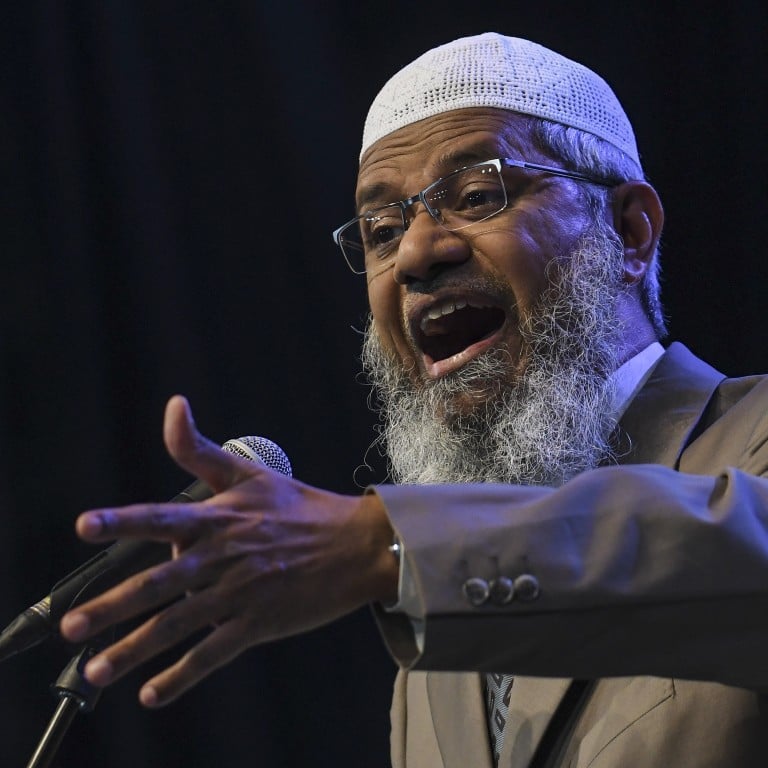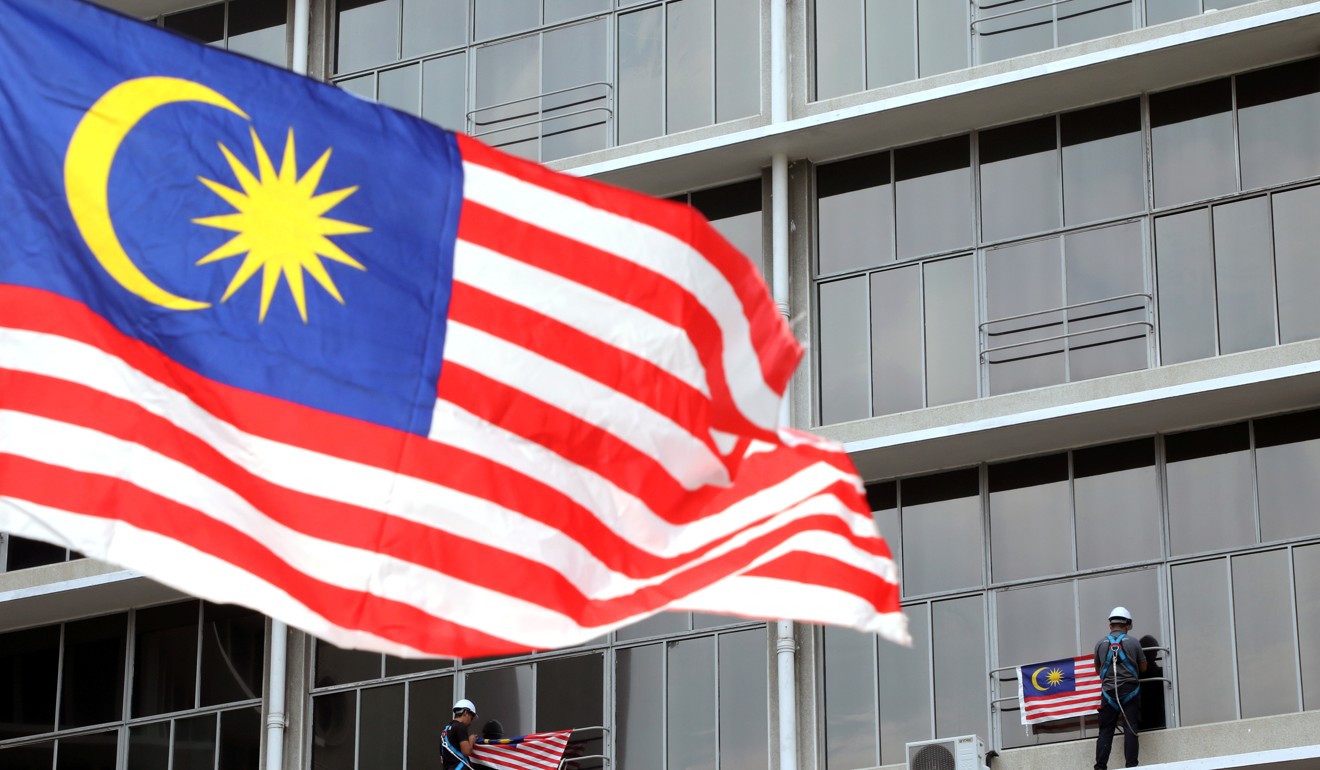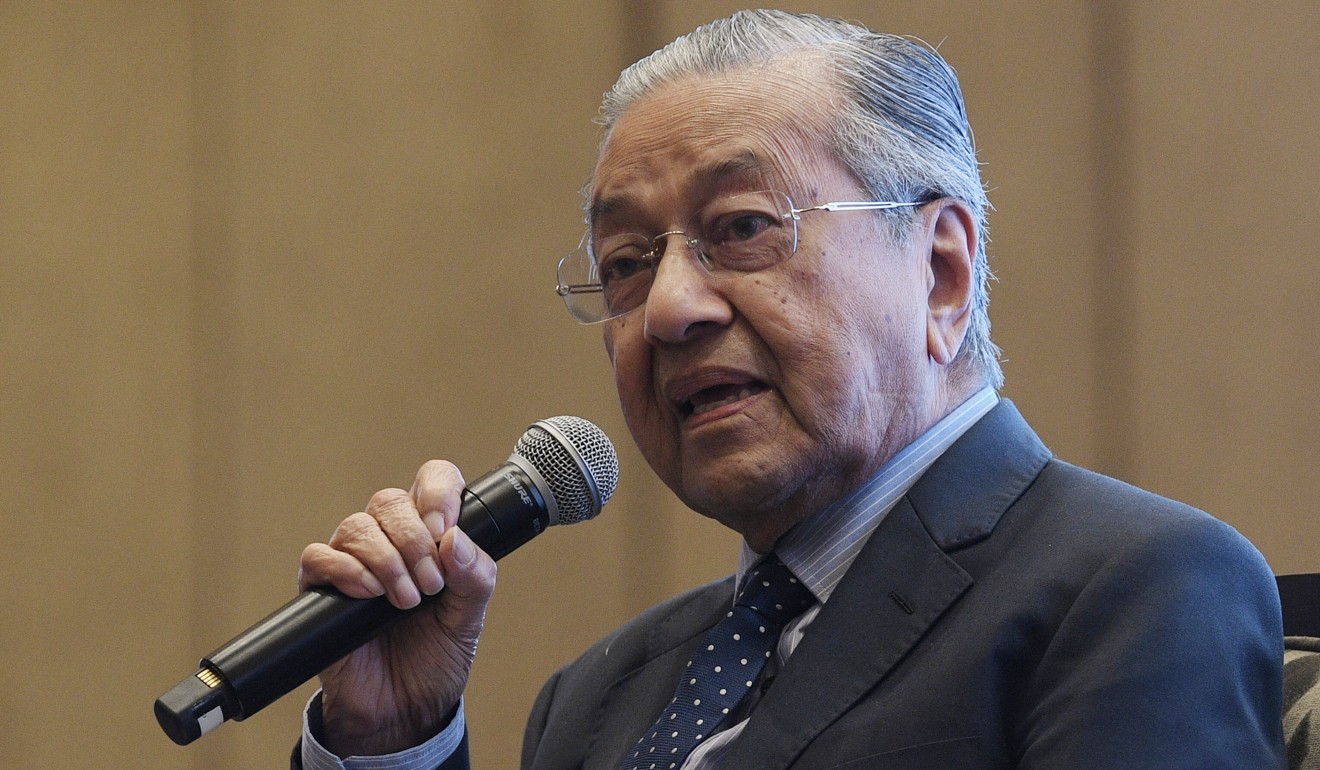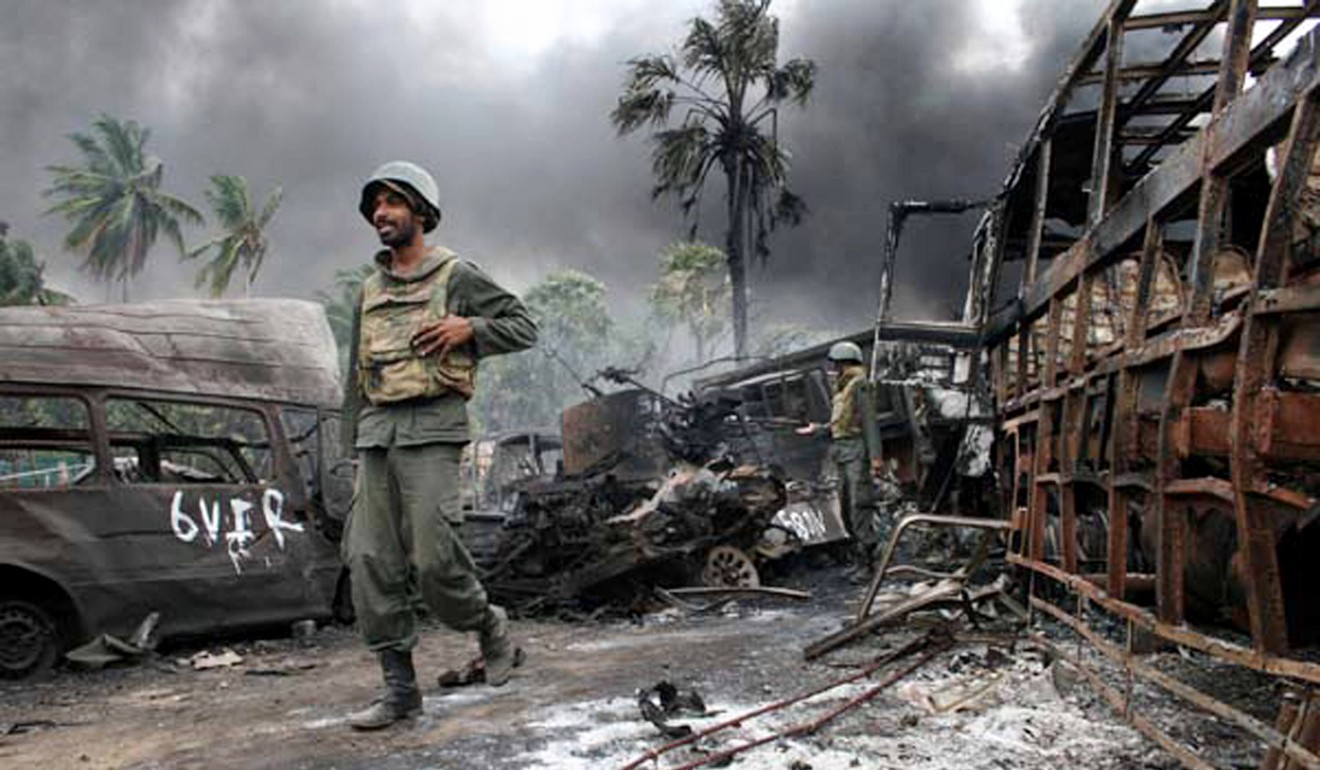
Muslim preacher Zakir Naik sues Malaysian MP over comments on Tamil Tigers-linked arrests
- Hardline televangelist launches legal action against Charles Santiago, saying the politician’s remarks have damaged his reputation
- Santiago had said the detention of ethnic Indians over alleged links to the militant group was a tool to punish those critical of Zakir
Discussing the issue at a forum, the lawmaker suggested the arrests were linked to political criticism of Zakir, who has made headlines for his puritan brand of Islam – recommending the death penalty for homosexuals and those who abandon the faith. In Britain, the preacher has been banned from entering the country.
Santiago said the arrests appeared to be a “warning” to Malaysia’s Indian community, as well as a tool to punish those who had criticised Zakir for causing racial disharmony.

The MP confirmed he had been served a notice of demand for defamation by Zakir’s lawyers, who said Santiago’s remarks had damaged the preacher’s reputation.
Santiago’s lawyers meanwhile maintain that the politician, “as an MP, is questioning the authorities in relation to the process of investigation”.
Malaysian lawmakers, CEO charged over links to Sri Lankan Tamil Tigers
Despite his hardline views, Zakir has been given permanent residency in multicultural Malaysia and embraced by top government officials, leading critics to suggest his presence implied top-level support for hardline Islam in a country that has long projected a moderate Islamic image and has a substantial Christian, Hindu and Buddhist minority population.

Zakir Naik banned from public speaking in Malaysia
Santiago said the DAP had become “collateral damage” in the coalition’s bid to win Malay-Muslim votes against an opposition that used racial and religious rhetoric to bolster support.
Although several cabinet ministers had initially lambasted the preacher for his remarks, top politicians from other coalition parties later walked back their statements and urged Malaysians to “forgive” Zakir. Political observers described this as an attempt to appease the increasingly conservative ethnic Malay-Muslim community, which makes up more than 60 per cent of the population.

Santiago is just one of a number of politicians the preacher has sued or threatened to sue, including Penang state Deputy Chief Minister II P. Ramasamy, Minister of Human Resources M. Kulasegaran and assemblyman Satees Muniandy – DAP leaders who have also been in the news for criticising the Tigers-linked arrests.
Last month Malaysian media reported that a group of 12 men – including two DAP assemblymen – were being investigated for suspected ties to the Tigers under Malaysia’s Security Offences (Special Measures) Act, which allows for 28 days of detention without any judicial oversight.
Santiago, along with other DAP members, questioned why his party colleagues had been arrested given that “even in Sri Lanka, the movement does not exist”. He called the Tigers, officially the Liberation Tigers of Tamil Eelam, “freedom fighters”.

